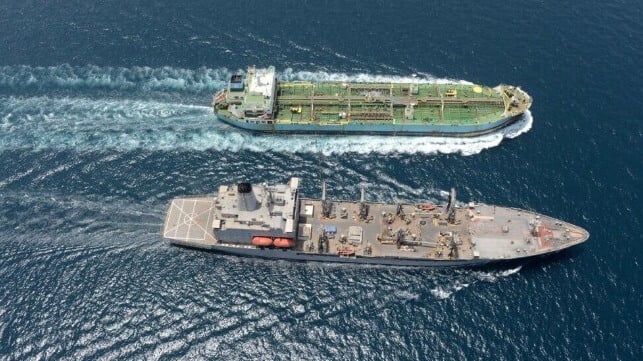Pacific Fleet Commander Raises Alarm Over Logistics Shortfalls

When America goes to war, it brings a gigantic logistics tail behind it. Providing for and defending the logistics force is a critical consideration for military planners, and for Pacific Fleet commander Adm. Sam Paparo, it is at the top of the list of concerns.
"21st century capability will not replace the principle of mass," he said. "Mass has a logic all its own. You know, an app is not going to feed troops in the field. So it is critically, critically important to raise our level within the combat logistics force."
Paparo looked back to the end of the Cold War for the changes that led to America's sealift challenges. With the fall of the Soviet Union, naval planners assumed that the United States would have uncontested access to the sea, he said. Market efficiency became more important than resiliency, and the defense industrial base shrank to the most economically efficient size to meet demand.
Times have changed, and 30 years on, the U.S. is facing a rising challenge from China - for Paparo, "the only state with both the intent to reshape the international order as spoken by the leader and the power to do so."
Now that there is a pressing need for a recapitalized fleet, the U.S. finds itself with a 1990s industrial base that is "oriented on efficiency instead of effectiveness," he warned.

that matters most
Get the latest maritime news delivered to your inbox daily.
"We are raising the alarm that we are on the razor's edge [with sealift]. And when we run war games [for the Pacific Theater], the red team goes for the combat logistics force, every single time," said Adm. Paparo.
While the list of needs is long, and the list of shipyards is slimmer than it once was, Paparo expressed optimism about the ultimate outcome. "If you are hanging your head about the American workforce and about the American industrial base, you're going about this all wrong," he said. "It's time to link arms and to rebuild the defense industrial base, because the logic of food, fuel, ammo, medical, building supplies, that logic is not going to be solved with an app."
